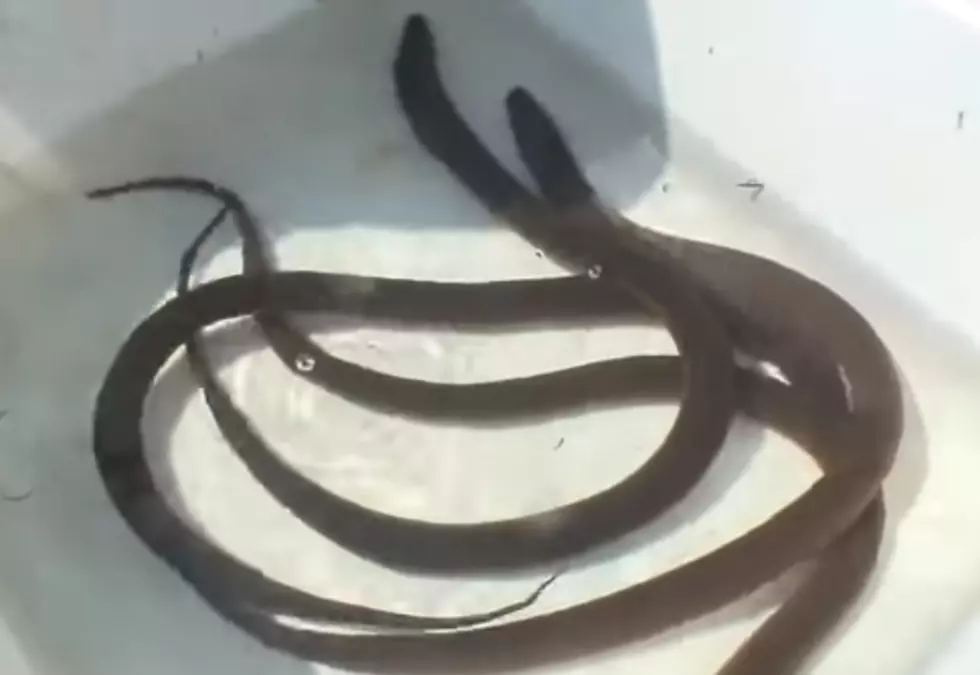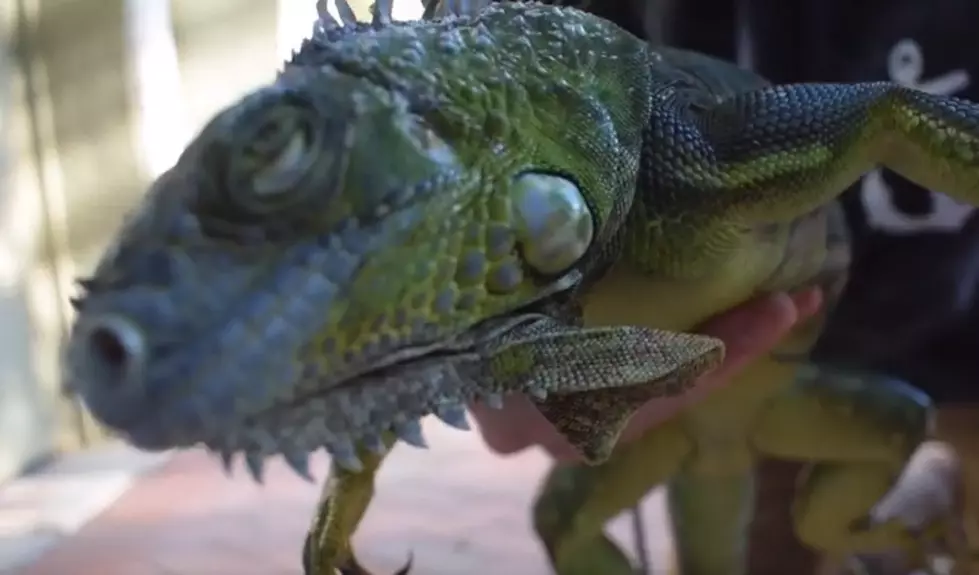
Giant Argentine Lizards in Louisiana – What To Do If You See One
Louisiana residents it's to pull out your "What's Going to Kill Us Next" Bingo Card and play along with the rest of the class. The past few years have brought us an eclipse, a deadly virus, murder hornets, and Taylor's Version of just about everything, and now check for that empty square on your Bingo card that says "Giant Argentine Lizards".
Perhaps the word "giant" is a bit of a stretch in this case. But, the lizards we are talking about are much larger than the geckos that frequent Louisiana patios and porches but they are considerably smaller than Godzilla who usually only dispense his wrath upon Japan and large monkeys.
The lizard we are talking about is known as the Argentine Black and White Tegus Lizard. It's a native of South America, hence the name Argentine Black and White Tegus Lizard. And if you happen to see one, you will certainly notice it.
Check this video out, and see if you recognize a former Lafayette TV Weather Man. It's the Little Slugger!
The mature creatures usually reach about four feet in length, about the size of your average toddler. And they weigh about ten pounds, the same as the orange bowling balls at your local bowling center. And they have been discovered in Louisiana.
They have also been discovered in Alabama, Florida, Texas, Georgia, and South Carolina as well. The good news is they aren't particularly harmless to people and they are not a huge threat to pets either. However, their appearance too many people would be "off-putting".
They also have some sanitary issues that you'll want to be aware of should you encounter one. Like a lot of reptiles this creature can carry Salmonella, so touching is not encouraged. Should you encounter one on your property I don't think you'll need a permit from the Louisiana Department of Wildlife, but here's the link to their Nuisance Animal page so you can verify that before you attempt any eradication.
It's true you might not want them eradicated from your property, you might want them to hang out because they can be very beneficial in certain regards. For example, the Tegus Lizard has a voracious appetite for insects, rodents, alligator eggs, and fruit but you should take note that this is an invasive non-native species that could have a detrimental effect on Louisiana's delicate ecosystem.
Wildlife experts say the large lizards arrived in the Gulf South via the pet trade. For the longest time, the lizards were allowed in several states as pets. But the U.S. Fish and Wildlife listed the Tegus Lizard as a wild animal, non-native to any state. The speculation is the lizards either escaped their habitats or were illegally released into the wild. So, that's how they got here.
Whether or not they stay, that will be up to you. But if they come into my yard, you can have mine. But I must admit, that hide would make a great-looking pair of boots.
5 Cheapest Homeowners Insurance Providers in Louisiana
More From 97.3 The Dawg




![Yes, Hammerhead Worms are in Louisiana and Acadiana [Video]](http://townsquare.media/site/33/files/2021/07/attachment-Hammerhead-Worm-Louisiana.jpg?w=980&q=75)




